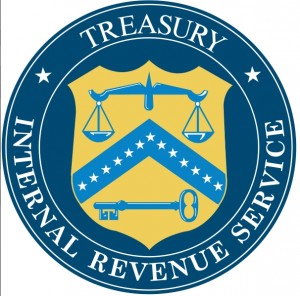
WASHINGTON — The Internal Revenue Service’s Criminal Investigation Division (IRS-CI) reminded taxpayers Friday to file accurate tax returns and choose a tax preparer wisely. The nation’s tax season started Friday, when the agency began accepting and processing 2020 tax year returns.
U.S. persons are subject to tax on worldwide income from all sources. Most taxpayers meet this obligation by reporting all taxable income and paying taxes according to the law. However, those who willfully hide income should know that the IRS works across its divisions to ensure the highest possible tax compliance. Taxpayers found to be committing fraud may be subject to penalties including payment of taxes owed plus interest, fines and jail time.
“As taxpayers, we are responsible for each item reported on our federal tax return. We have a duty to file accurate returns and choosing the right return preparer is an extremely important decision,” said Acting Special Agent in Charge Steven M. Slazinik. “Each year, IRS-CI special agents investigate return preparer fraud involving false deductions and credits that inflate refunds. This criminal activity affects taxpayers, but also has serious consequences for the unscrupulous return preparer.”
Tax return preparers are vital to the U.S. tax system. As of tax year 2018, 55 percent of taxpayers used a paid preparer. Although most preparers provide honest and professional services, there is a small number of dishonest preparers who set up shop during filing season to steal money, personal and financial information from clients. Taxpayers can avoid falling victim to unscrupulous preparers by following important steps.
Tips when choosing a tax preparer:
- Look for a preparer who is available year-round in case questions arise after the filing season.
- Ask if the preparer has an IRS Preparer Tax Identification Number (PTIN), which is required for paid preparers.
- Inquire about the preparer’s credentials and check their qualifications.
- Ask about service fees. Avoid preparers who base fees on a percentage of their client’s refund or claim to offer a bigger refund than their competition.
- Never sign a blank or incomplete return and review it before signing. Refunds should go directly to the taxpayer, not the preparer.
For more tips on choosing a tax professional or to file a complaint against one, visit IRS.gov. Taxpayers who suspect tax violations by a person or business, may report it to the IRS using Form 3949A, Information Referral.
The IRS Criminal Investigation Seattle Field Office is committed to protecting Alaskan taxpayers from unscrupulous tax preparers. Here are some examples of some of the most egregious criminals that have been recently investigated and brought to justice:
- Sanh Sunni Thampithak, a/k/a “Allysia” or “Ally” pled guilty to aiding and assisting the preparation of false federal income tax returns for the Lao community and others in Anchorage. On January 25, 2021, Thampithak was sentenced to one year and one day in federal prison, followed by one year of supervised release, and ordered to pay $348,759 in restitution.
- Jose Luis Arenas pled guilty to 5 counts of aiding and assisting the preparation of false federal individual income tax returns with a clientele primarily of Spanish-speaking members of the Anchorage community. On February 11, 2020, Arenas was sentenced to five years of probation and ordered to pay $443,465 in restitution.
- Teddy Haley Abaya pled guilty on February 13, 2020 to aiding and assisting in the preparation of false federal tax returns for individuals in the Dutch Harbor community. She was sentenced to five years of probation and ordered to pay $357,454 in restitution.
-30-
